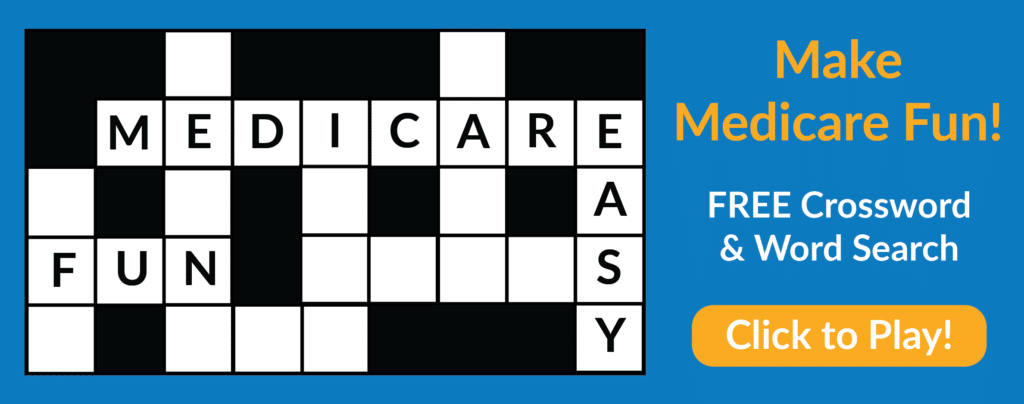Signs of Depression in Older Adults
Depression is more than just feeling sad from time to time. It’s a serious mental health issue that can be treated. It can cause severe symptoms that affect your entire life including how you think, feel, and handle day-to-day activities such as sleeping and eating.
Depression is a legitimate illness. It’s not something you can just “shake off” one day, and it doesn’t mean that you’re weak or that you lack willpower. It’s important to know the signs of depression in older adults so you can find the treatment you need.

Types of Depression
According to the National Institute on Aging (NIA), there are several types of depression. The most common types of depression are major depression and persistent depressive disorder.
- Major depression involves severe symptoms that affect your ability to work, sleep, study, eat, and find joy in life. A person may experience an episode of major depression only once, however, multiple episodes are more common.
- Persistent depressive disorder is a depressed mood that lasts for two years or more. A person diagnosed with persistent depressive disorder may have episodes of major depression with periods of less severe symptoms in between.
Other forms of depression include Seasonal Affective Disorder (SAD), psychotic depression, and postpartum depression.
Signs and Symptoms of Depression in Older Adults
It might be difficult to recognize depression in older adults because they may show different symptoms than younger adults. For example, sadness is not the main symptom for some older adults. They may have less obvious symptoms of depression like restlessness, or they may not be willing to talk about their feelings. Doctors may be less likely to recognize that you have depression.
Sometimes older people who are depressed feel tired, have trouble sleeping, or seem irritable. Sometimes the attention problems that depression can cause look like Alzheimer’s disease or other brain disorders. Older adults may have medical conditions such as heart disease, stroke, or cancer, which may cause symptoms of depression. Certain medications can also have side effects that contribute to depression.
There are many symptoms associated with depression, and they can vary from person to person. If you have any of the following symptoms for more than two weeks, you may have depression. Symptoms of depression can include:
- Persistent sad, anxious, or “empty” mood
- Feelings of hopelessness, guilt, worthlessness, or helplessness
- Irritability
- Restlessness
- Loss of interest in activities you once enjoyed
- Fatigue or a lack of energy
- Talking or moving slower
- Difficulty focusing, remembering, and/or making decisions
- Difficulty sleeping, waking up in the early morning, or oversleeping
- Unplanned weight gain or loss
- Suicidal thoughts, suicide attempts, or thoughts of death
- Aches or pains including headaches, cramps, or digestive problems without a clear physical cause and/or that do not ease with treatment
- Frequent crying
Depression Risk Factors
Several factors can contribute to depression including:
Genetic factors: People who have a family history of depression may be more likely to develop it than people whose families do not have a history of the disease.
Personal history: Older adults who had depression when they were younger are more at risk for developing depression later in life than people who did not have the illness earlier in life.
Brain chemistry: People with depression may have different brain chemistry than people who do not have the disease.
Stress: Situations such as the loss of a loved one or a difficult relationship can trigger depression.
Age: Depression can occur because of the changes that happen as you age. For example, some older adults have a condition called ischemia, which means restricted blood flow. With ischemia, the brain may not get the blood it needs to function. A condition called vascular depression can result, which also puts the person at risk for heart attack, stroke, or other hematologic disorders.
Depression can co-occur with other serious medical conditions such as diabetes, cancer, heart disease, and Parkinson’s disease. Depression can make these conditions worse. Sometimes medications taken for these physical illnesses can cause side effects that contribute to depression. Your doctor may be able to help find the best course of treatment with the fewest side effects.
What Caregivers Need to Know About Depression
It can be difficult to detect depression in your loved one. For example, grieving after the loss of a loved one is normal, and it oftentimes doesn’t require professional mental health treatment according to the National Institutes of Health.
If you notice that your loved one has signs and symptoms of depression, make an appointment with the doctor. Know what questions to ask your loved one’s doctor and go into your doctor prepared with notes about:
- Any symptoms your loved one has even if they unrelated to the reason for your appointment. Write down when their symptoms started, the severity of symptoms, if they’ve occurred before, and the treatment for the symptoms.
- Key personal information such as any major stresses or recent life changes
- All medications, vitamins, or other supplements that your loved one takes. Be sure to include the medication’s dosage and the frequency at which your loved one takes them
Caregivers Can Also Experience Depression
It may be easy to forget about yourself when you spend so much time and energy on your loved one. Caregivers can experience depression, too. According to the Family Caregiver Alliance, many people with symptoms of depression don’t think they’re depressed. Caregivers may have unique concerns when it comes to their own depression including:
- Dementia caregivers experience depression at higher rates. People who care for loved ones with dementia are twice as likely to suffer from depression than other caregivers. Dementia caregivers spend more time with their loved ones than other caregivers, and they may experience the following issues:
- Employment problems
- Stress
- Physical and mental health issues
- Sleep deprivation
- Less time to do the things they enjoy
- Less time with other family members
- Increased family conflict
- Women experience depression at higher rates than men: According to the Family Caregiver Alliance, about 12 million women experience major depression each year, which is double the rate of men. Physical factors such as iron, vitamin D, and Omega-3 fatty acid deficiencies along with menopause and thyroid disease can contribute to depression.
- Men experience depression differently than women. Men are less likely to report feelings of depression to their doctor, and they’re more likely to “self-medicate” with alcohol or other substances.
- Depression can persist even after you place your loved one in a care facility. It can be stressful to move your loved one into a long-term care facility. Even though you may get some much-needed rest, you may feel guilty or lonely, which may contribute to major depression.
Caregiver Support Services
Some caregivers can receive compensation from their state’s Medicaid program. Benefits and payment amounts vary by state.
You can also look for online and in-person support groups that focus on the needs of specific caregivers. For example, some support groups are only for dementia caregivers.
Other caregiver resources include educational materials and respite care, which is when your loved one stays at a hospital or long-term care facility to give you a break. Medicare will cover respite care only if it’s a part of hospice care.
How to Prevent Depression
According to WebMD, doctors don’t know if it’s possible to “prevent depression altogether.” However, you may be able to keep it from returning if you’ve already had an episode. Some therapists use a treatment called mindfulness-based cognitive therapy (MBCT), which combines cognitive therapy with mindfulness.
According to the Mayo Clinic, cognitive therapy is a type of psychotherapy that helps the patient change negative thinking patterns that can come with depression. Mindfulness is the “self-regulation of attention with an attitude of curiosity, openness, and acceptance, according to Psychology Today.
Other ways to help prevent depression include changes to your lifestyle and nutrition habits. Even though there’s no guaranteed way to prevent depression, you can:
- Find ways to improve your self-esteem and manage stress.
- Practice healthy eating, sleeping, and exercise habits.
- Reach out to friends and family during difficult times
- Get regular medical check-ups and make a doctor’s appointment if you don’t feel right.
Treatment for Depression in Older Adults and Medicare Coverage
Even the most severe depression can be treated, according to NIA. Treatments often include therapy — usually talk therapy — and prescription drugs.
Depression can get a lot worse if you wait to seek help, so it’s important to talk to your doctor as soon as you notice something is wrong.
You can receive Medicare coverage for depression treatment if you are 65 or older, have ALS or ESRD, or have received SSDI for at least 25 months.
Medicare Part B may cover behavioral health services like psychiatrist or psychologist appointments. Counseling or therapy sessions may be limited because they are only covered under Medicare if your doctor accepts Medicare assignment. Behavioral health services can include:
- One-on-one and group therapy
- Substance abuse treatment
- Occupational therapy
- Active therapy (art, dance, music therapy)
- Family counseling
- Annual depression screening
- Prescription drugs you cannot administer yourself
Original Medicare will cover these services at 80 percent of the Medicare-approved amount. This means you may pay 20 percent coinsurance after you meet the Part B deductible. For example, if your psychologist bills Medicare for $200, you’ll pay $40.
Other treatments for depression can include antidepressants, which are prescription drugs that can help ease symptoms of depression. Original Medicare does not cover prescription drugs. However, Medicare Part D or certain Medicare Advantage plans do.
Medicare Advantage policies are private insurance plans that can offer additional benefits to help treat and prevent depression such as depression screening, possible reduced therapy costs*, and fitness classes!
Another option for additional Medicare coverage is a Medicare Supplement (Medigap) plan. You cannot have a Medicare Advantage plan and a Medigap plan at the same time, so it’s important to know the difference between the two. Medicare Advantage plans cover additional benefits. Medigap plans cover financial items such as coinsurance and copays**.
*A Medicare Advantage plan may offer coverage for therapy services. You may still owe a copay.
**You are still responsible for the Medicare Part B premium even if you have a Medicare Advantage or a Medicare Supplement plan.
Get Medicare Mental Health Coverage Today
Whether you need a Medigap plan, a Medicare Advantage plan, and/or a standalone Medicare Part D plan, a licensed agent with Medicare Plan Finder may be able to help.
Our agents are highly trained and they can help you assess your needs. Your agent can see what plans are available in your area and help you determine what’s right for you. Call us at (833)-567-3163 or contact us here to set up a no-cost, no-obligation appointment.






